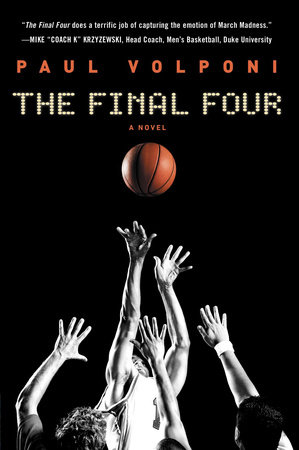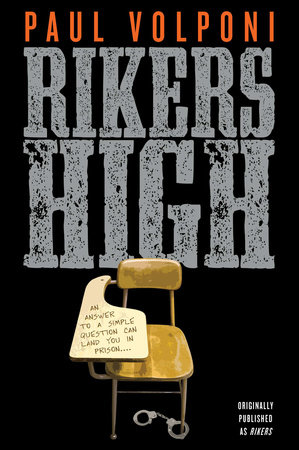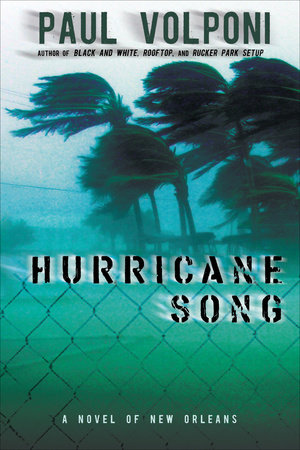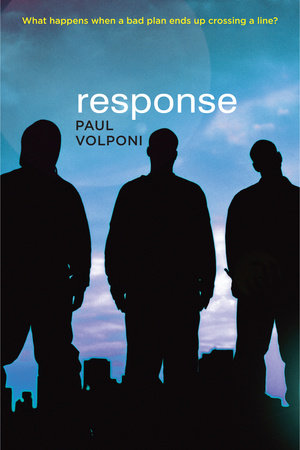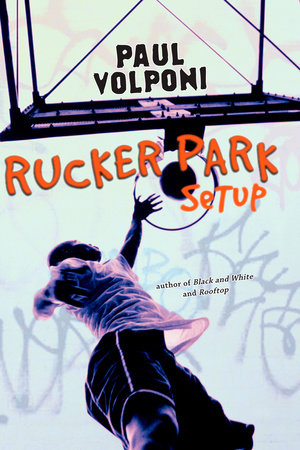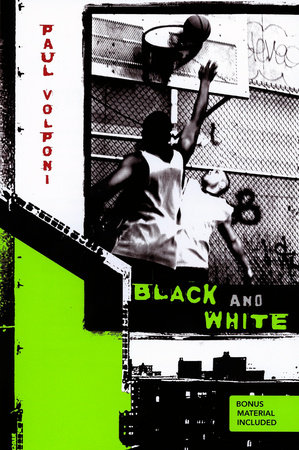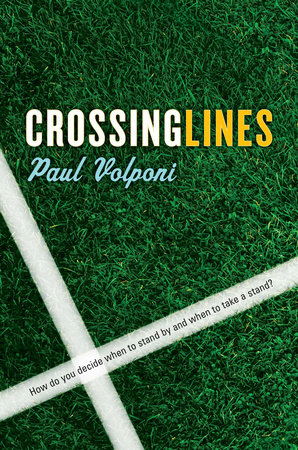
Game Seven
Paperback
$10.99
- Pages: 272 Pages
- Publisher: Penguin Young Readers Group
- Imprint: Speak
- ISBN: 9780142424292
An Excerpt From
Game Seven
“Your papi was able to get a sum of money into Cuba through a Canadian turista,” he said, as the smell of swordfish filtered through the salty air. “That money was given to Gabriel.”
I was pissed. My family had struggled for every peso, just to meet the bills. No wonder Gabriel could afford steaks like these.
“Why?” I demanded. “How come our money went to him?”
“So Gabriel can get us out of Cuba,” Uncle Ramon replied, before popping the top on a can of soda with a tsssp.
Those words seemed to hang in the air for a moment— get us out of Cuba.
I only felt the weight of them when Luis grabbed hold of my arm and gasped, “Holy crap.”
My heart began beating harder and harder inside my chest, and I had to actually think about taking my next breath.
“And that’s his payment?” I asked, hoping to steady myself.
“Payment?” repeated Gabriel, turning the steaks on the grill with a long metal fork. “No. There’s nothing for me. That money covered the entire cost of building—”
“Look! Down the beach!” interrupted Luis. “Police!”
There were two officers on a motorcycle with a sidecar. It had three wide wheels, meant to power its way over the sandy shore. They were slowly making their way from the far end of the beach toward where we’d camped.
“Just act naturally. Remember the truth: you’re baseball players from Matanzas celebrating a victory over Puerto Padre. Nothing more,” instructed Gabriel. “Besides, I know these two, what they’re all about.”
“You know them?” asked Luis.
“I make it my business to,” answered Gabriel, through the smoke from the barbecue.
The policemen rolled past the families and kids without any interest. But they took a long glance at the two girls reading on their blankets. They seemed about to pass us, too, before Gabriel called out to them, “Officers! A moment, please!”
I shot Uncle Ramon a concerned look, already feeling the sweat on my palms.
“I’ve learned to trust him,” Uncle Ramon said quietly, barely moving his lips. “There’s no other way.”
Gabriel took one of the steaks on a paper plate down to the officers, who were maybe ten yards from the water. They had some conversation. Then one of the officers gave us a thumbs-up and called out, “I used to play baseball myself.”
A minute later, they were gone with their steak.
“They’ll pass this way again in a few hours, just before sundown,” said Gabriel, who’d walked back to us. “Their last patrol of the day. That’s when we’ll be packing up.”
“We’re going to sit here that long?” asked Luis. “And do what? Talk?”
“How much of this does my mama know?” I asked Uncle Ramon.
“She knows enough,” he answered. “That there’s a plan, and that it’s happening sooner rather than later.”
“How soon?” I asked.
“Tonight,” answered Gabriel, handing me a steaming plate of fish.
“What about her and Lola?”
“Your mother thinks the trip is too dangerous for Lola,” answered Uncle Ramon. “And she won’t leave her daughter behind. Your sister knows nothing of it.”
“They’re both staying?” I asked.
“Your mother’s made her choice,” my uncle said. “Now you need to make one.”
“How about me?” asked Luis.
“I’m your father,” said Uncle Ramon. “You go where I go, and we’re leaving Cuba.”
Luis nodded his head, taking a plate of his own.
I turned to my cousin and said, “Besides, you don’t want to be the son of a defector.”
Then Uncle Ramon looked at us both and said, “I’m sorry about all the deceptions, for keeping you in the dark so long. But the fewer people who knew, the better our chance of making it this far without being arrested.”
“Papi’s money,” I repeated to myself in disgust.
“I know you’re angry at him, Julio. But your papi does love you. He wants you to be free,” said Uncle Ramon, peeling off a chunk of fish with his fingers. “And if you decide to stay, well, Moyano will know that he can trust you. He’ll make you a Nacional for sure.”
With all of that churning inside my stomach, Gabriel sat down, making four of us in a tight, seated circle.
“Before we make any decisions, let me be honest with you boys. Tell you what I know of a journey like this one,” Gabriel said. “When I was eight years old, from this beach, I boarded a raft for the US.”
My uncle stopped him and said, “If it’s too painful, you don’t need to go through all the details again.”
“Thank you, amigo,” said Gabriel, who took a deep breath before he continued. “Both my parents were dead and my grandfather was getting too old to take care of me. Our neighbors were planning an escape. It wasn’t much of a raft, just wood and rubber tied together with ropes. They made oars from fish boxes. My grandfather gave them the rubber from some old car tires he had. So they agreed to take me along. There were eight of us—three grown men, two young women, one very old woman who could barely walk, me, and their family dog. Before the trip, we all went to church together.”
“To pray?” asked Luis.
“Yes,” he answered. “The priest even gave me my first Communion—the body and blood. As soon as it got dark, we put the raft into the water. The moon was cut like a sickle— thin and sharp. Everything went smoothly that night. But the next morning, instead of sun, there were black storm clouds and ripping winds. First, our food and water got washed overboard. Then, piece by piece, the raft started to come apart.”
A pair of kids chasing each other, kicking up sand behind them, did a close lap around our camp.
“Hey, watch it!” Luis hollered. “Keep—”
Uncle Ramon stopped Luis cold, showing him a single finger over his lips, followed by a long look.
Gabriel resumed his story. “We all huddled in the middle of the raft. At some point, the dog spotted something in the water and jumped in after it. I heard him barking for a while. But I never saw that dog again. The others tied the old woman and me to the raft. The waves pounded us. I couldn’t open my eyes. They were stinging from all the salt water. When the sun finally came out and the waters calmed, there were only five of us left. Over the next eight or ten hours we floated in the middle of nowhere. Then the raft broke apart even more. I was clinging to the old woman. She was dizzy by that point, seeing things that weren’t there. The others each had their own section of raft. We were floating within fifty yards of each other when we heard an engine in the distance. It was a boat. Unfortunately, it was Cuban.”
“So they brought you back here,” I said.
“They did, to the docks in Cárdenas,” he answered. “But before they pulled us from the water, the old woman asked me about the boat. ‘Who is it?’ she wanted to know. I’d already recognized the flag on its side. All I said to her was, ‘We’re saved.’”
“What did they do to you all?” I asked.
“The surviving adults went to prison. I got sent to an orphanage and never saw my grandfather again,” answered Gabriel, setting down his plate in the sand. “The old woman, I believe she died happy, because she never made it back to shore.”
“For almost thirty years now, Gabriel has worked as a fisherman in these waters,” said Uncle Ramon. “He knows these currents like the back of his hand—where they run, how swiftly they can change.”
“And thanks to El Fuego, now I have a vessel of my own to captain,” added Gabriel. “One that will hopefully sail us to freedom.”
I stood up and silently walked down to the shoreline, alone. I stared at the northern horizon, that distant point where the water and sky touch. I thought about what it would take to reach it. To be in a place where the higher-ups in Cuba didn’t have control over me. Would it be worth maybe never seeing Mama and Lola again?
Would it be worth risking my life?


